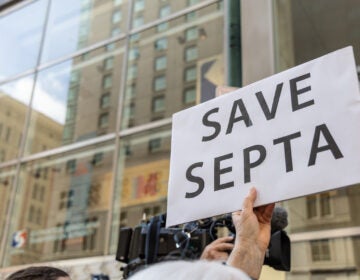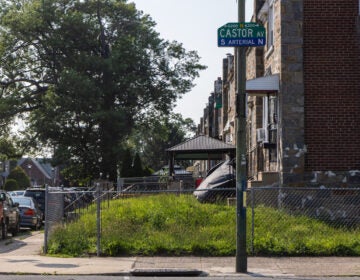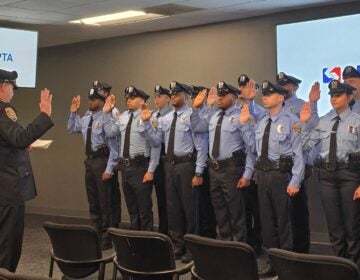Transit advocates want a test of one-way fares
The Delaware Valley Association of Rail Passengers wants SEPTA to test out a one-way fare proposal on two regional rail lines before adopting it system-wide.
One-way fares, in which riders would pay double leaving Center City and pay nothing inbound, are one approach to fare collection SEPTA is considering as it prepares to roll out a new smart card system.
The transit advocacy group has been highly critical of this proposal since PlanPhilly obtained documents describing it over the summer.
Matt Mitchell, who represents the group, reiterated “serious misgivings” at a SEPTA Board meeting Thursday. Mitchell said one-way fares represent an “open invitation” to game the system and evade fares by taking free regional rail rides into Center City and taking other modes outbound.
To help measure any ridership changes ― and revenue losses ― Mitchell asked SEPTA to test out one-way fare collection on one rail line that serves the city and one line that serves the suburbs.
This would essentially replicate a test the Massachusetts Bay Transportation Authority conducted on two of its rail lines in the early 1990s. The project, which was meant to reduce conductor overtime costs, was abandoned because of ridership changes on the two lines that moved over to one-way fare collection.
Mitchell wants SEPTA to offer free inbound trips on the chosen lines and sell existing round-trip tickets at the Center City stations. Conductors would then collect the round-trip tickets on outbound trips.
DVARP also called on the SEPTA Board to vote on any fare and tariff changes necessary to implement the smart card system before it approves a contract with a vendor to build the system.
SEPTA general manager Joe Casey has said that the authority plans, in essence, on doing the opposite: It will be presenting a contract to the board for approval before deciding on policies like one-way fare collection.
Casey has also said the contract will allow SEPTA the flexibility to decide major policy questions after having public meetings on any changes.
In other news, Casey announced an end to SEPTA’s regional railcar shortage. Because of weather-related problems, SEPTA had 42 railcars out of service, leading to crowding on some trains.
Thanks to better weather, SEPTA has been able to bring all but three of the 315-car fleet back in service.
Last month’s storms did hit the authority’s bottom line, though.
While ridership was up for the sixth straight month, operating expenses were $2.4 million over budget because of snow removal and other costs. The authority closed January with a $1 million deficit for the month, though it has a surplus of $12.2 million for the fiscal year, in part because of a bond swap executed in October.
Contact the reporter at acampisi@planphilly.com
WHYY is your source for fact-based, in-depth journalism and information. As a nonprofit organization, we rely on financial support from readers like you. Please give today.






